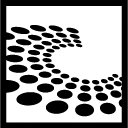22C3 - 2.2
22nd Chaos Communication Congress
Private Investigations
| Referenten | |
|---|---|

|
Tonnerre Lombard |

|
André Rebentisch |
| Programm | |
|---|---|
| Tag | 2 |
| Raum | Saal 1 |
| Beginn | 12:00 |
| Dauer | 01:00 |
| Info | |
| ID | 593 |
| Veranstaltungstyp | Podium |
| Track | Society |
| Sprache | englisch |
| Feedback | |
|---|---|
|
Haben Sie diese Veranstaltung besucht? Feedback abgeben |
Software Patenting
Adequate means of protection for software.

Patent attorneys and a few large corporations advocate patent law as an appropriate protection tool for software development. Most economists, software professionals and SMEs disagree. They believe patent law does not serve market needs. This year the European Parliament rejected a 'Directive on the patentability of computer-implemented inventions'. However, as the European Patent Offices continues to grant them problems remain. Our expert panel with discuss further developments.
Topics:
- Future European and woldwide developments On the worldwide level the patent system is reforming and increasing its efficiency. But further safeguards for software development and against institutional failure are required to reduce the collateral damage of the inflexible system which is not ready for dynamical. We will discuss possible initiatives on the national, European and supranational level. Our European activities were echoed by an intense debate in the United States. Companies like Microsoft (see Eolas case) now call for a patent reform. However, the United States export their current legislation through Trade Agreements. Further developing nations put pressure on TRIPs-'harmonisation' and access to knowledge at WIPO. Notably too the Indian Parliament recenty rejected a governmental proposal for software patenting.
- Industrial Copyright
- IPRED2 - the last cornerstone of the EURO-DMCA
- Community patent and reform of the European Patent Office
